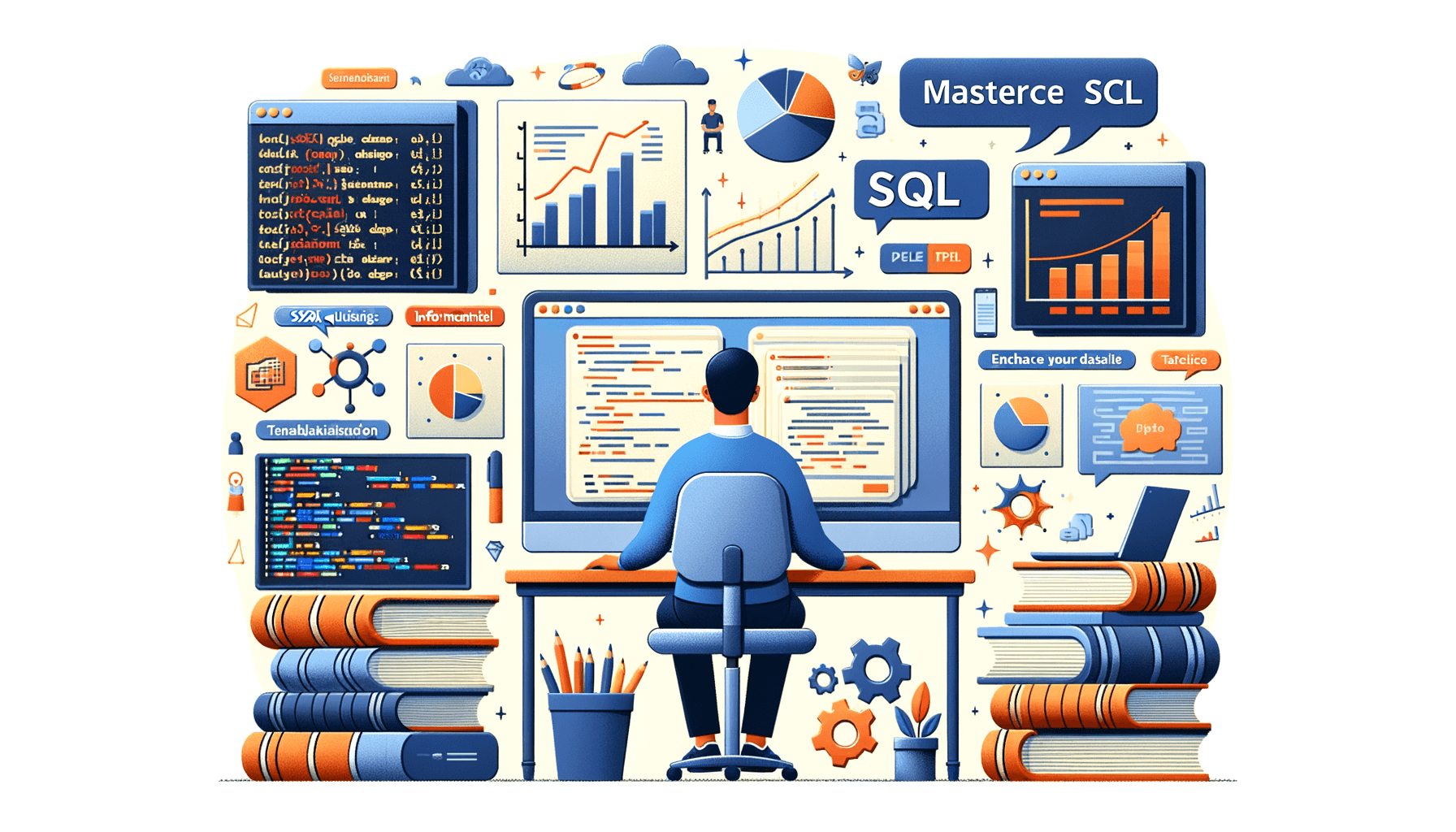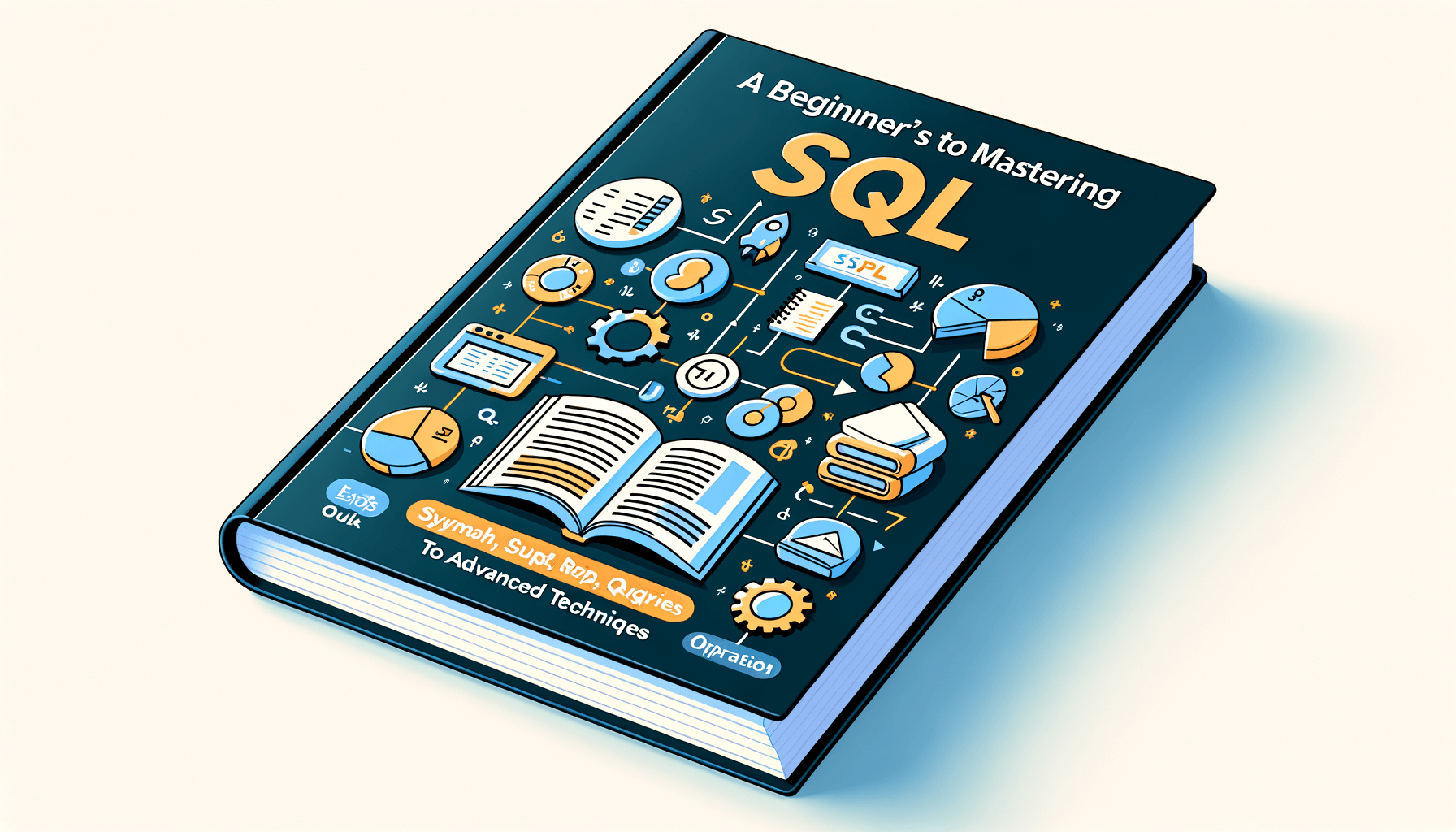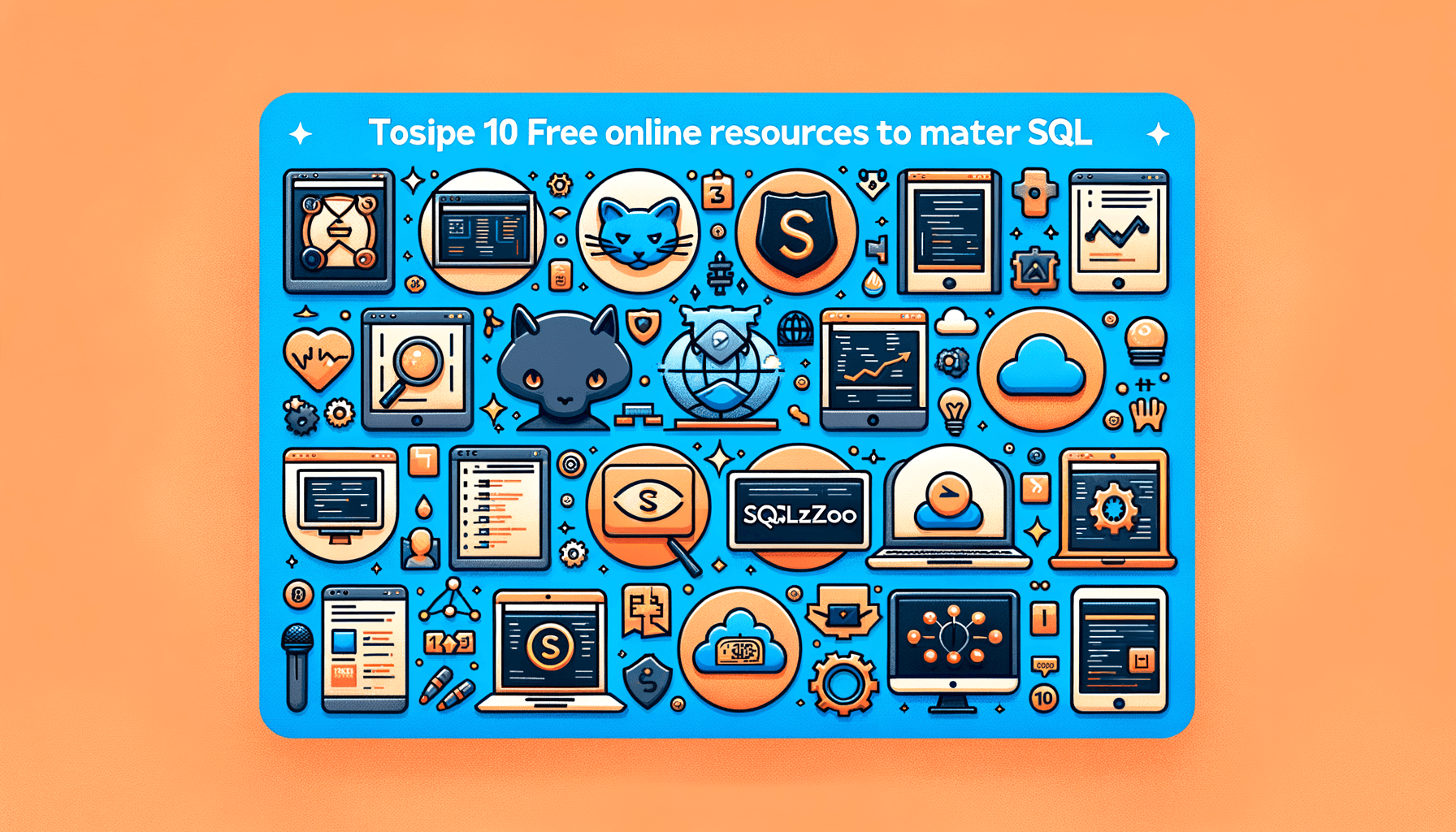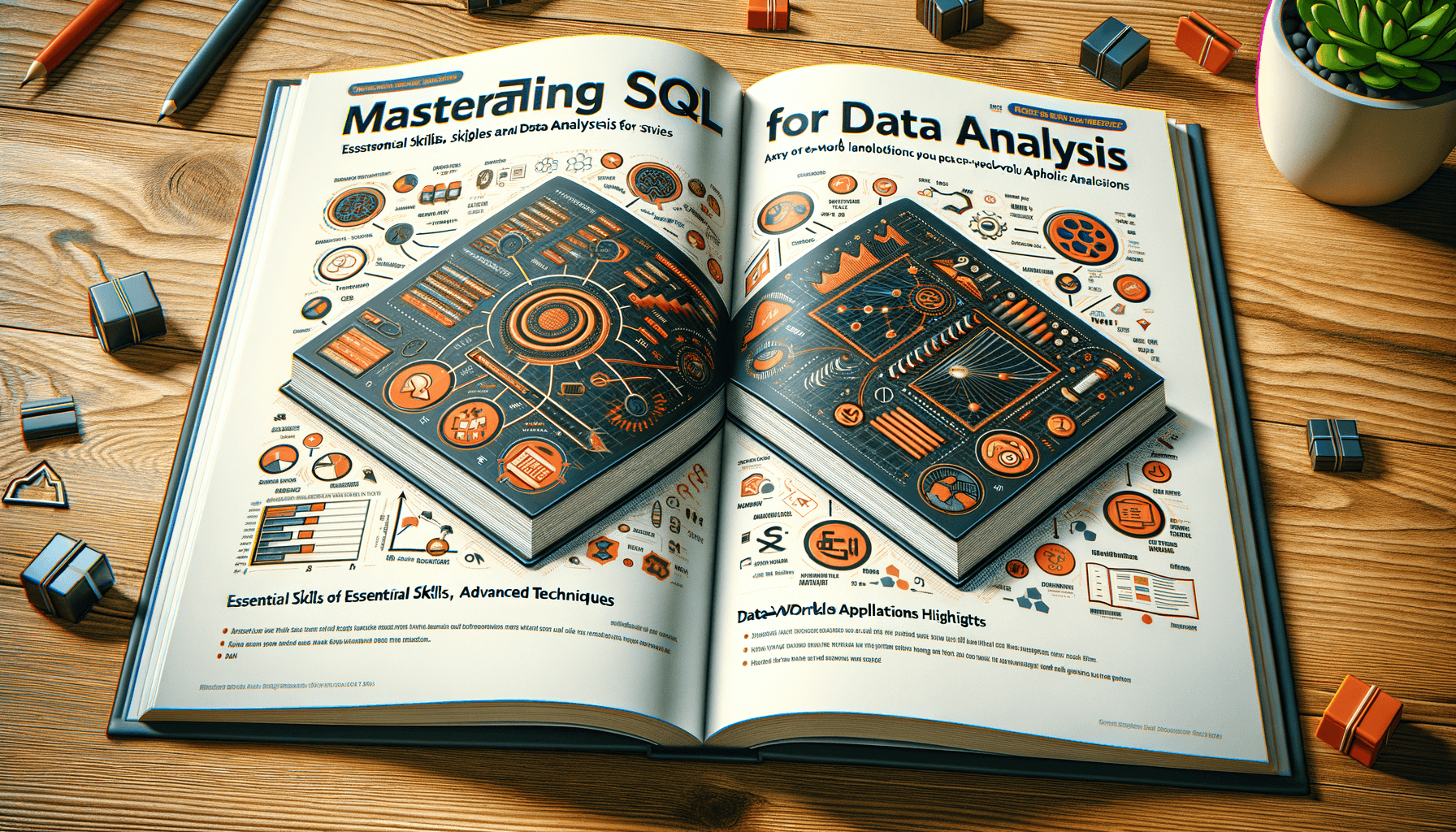A big variety of articles and resources

Master the Essentials: Learn SQL for Data Analysis
 Sia Author and Instructor
Learn SQL
Sia Author and Instructor
Learn SQL
7 minute read
Mastering SQL for Data Science
In the ever-evolving field of data science, SQL stands as a cornerstone skill for data manipulation and analysis. Mastering SQL can significantly enhance your data science capabilities, allowing you to extract, analyze, and interpret large datasets with efficiency and precision. This section offers actionable advice and resources to deepen your SQL skills, tailored for a career in data science.
Understanding SQL in Data Science
The Role of SQL
In today's data-driven world, SQL is an indispensable tool for data scientists. It allows for efficient data extraction, manipulation, and analysis. For example, querying a database to find customers who made purchases over $500 in the last month can be done effortlessly with SQL.
SQL's Significance in Data Analysis
SQL provides a standardized language for searching, manipulating, and combining data from relational databases. This enables analysts to obtain, convert, and aggregate data efficiently, helping them extract insights and make informed decisions.
Practical Applications
SQL is used in various practical scenarios, from simple data retrieval to complex data manipulation. Whether you're working on sqlskillz.com vs. datacamp.com to master SQL basics or handling large datasets in a corporate environment, SQL remains a vital skill for any data professional.
SQL Basics for Data Analysis
Foundational Skills
Embarking on the journey of data science requires a solid foundation in SQL—the language that makes communicating with databases seem like a breeze. This section unveils the essential SQL skills every aspiring data scientist must master, from crafting your first query to sophisticated data manipulation techniques. Let's decode the basics, one query at a time.
Basic Syntax and Queries
Understanding the basic syntax and structure of SQL queries is crucial. Mastering these fundamentals will enable you to retrieve, manipulate, and analyze data efficiently. Start with simple queries to select data from tables, and gradually move on to more complex operations like filtering, sorting, and grouping data.
Data Retrieval Techniques
Data retrieval is a core aspect of SQL. Learn how to use SELECT statements to fetch data from one or more tables. Additionally, familiarize yourself with various clauses like WHERE, ORDER BY, and GROUP BY to refine your data extraction process. For those looking to master SQL basics at your own pace, platforms like sqlskillz.com vs udemy.com offer excellent resources without requiring a credit card to get started.
Advanced SQL Techniques for Data Analysis
In the realm of data science, mastering SQL isn't just about knowing the basics; it's about leveraging its full potential to dissect and analyze data in complex, innovative ways. This section delves deep into advanced SQL techniques, setting the stage for data scientists to unlock new insights and efficiencies in their work.
Practical Tips for Improving SQL Skills
Hands-On Exercises
Consistent practice is crucial for mastering SQL. Engage in exercises that challenge your understanding of SQL queries, data manipulation, and table creation. For instance, try to replicate the results of complex analytical functions using basic SQL commands. Websites like sqlskillz.com vs codecademy.com offer platforms where you can practice SQL basics at your own pace.
Common Pitfalls to Avoid
Avoiding common mistakes can significantly improve your SQL skills. Beginners often neglect the importance of understanding database design and overlook advanced SQL features like window functions and optimization techniques. Regularly reviewing your queries to identify inefficiencies or errors can be invaluable for learning how to optimize your data retrieval and manipulation techniques.
Useful Resources
There are numerous resources available to help you improve your SQL skills. Websites like Kaggle offer real-world datasets that you can use to practice writing queries, giving you a taste of the challenges data scientists face daily. Additionally, many online platforms provide SQL exercises tailored to various levels, allowing you to engage in projects that require data extraction, manipulation, and analysis.
Remember, the key to mastering SQL is consistent practice and learning from your mistakes.
Data Visualization Using SQL
Creating Visualizations
Mastering data visualization using SQL can significantly enhance your data analysis capabilities. SQL's integration with visualization tools like Tableau or PowerBI transforms raw data into interactive and insightful visual reports. These tools can connect directly to SQL databases, enabling real-time data analysis and reporting. This integration facilitates a holistic view of data, making it easier for stakeholders to make informed decisions.
Integrating SQL with BI Tools
The combination of SQL with other tools enhances its utility, making it a powerhouse in the data science toolkit. For those interested in exploring further, here are some useful resources:
- SQL Fundamentals
- SQL for Business Analysts
- Introduction to Power BI
- DAX Functions in Power BI
Case Studies
SQL's versatility in data science is evident through various case studies. Analysts use SQL for data aggregation, summarization, cleaning, and transformation. These functions help compute metrics such as counts, sums, averages, and maximum or minimum values, providing useful insights and developing summary reports or key performance indicators (KPIs).
Data visualization using SQL is a powerful way to interpret and present your data effectively. Whether you're a beginner or looking to refine your skills, our comprehensive courses are designed to help you master SQL and data visualization techniques. Visit our website to explore our course catalog and start your learning journey today!
Conclusion
Mastering SQL is an indispensable skill for anyone serious about data analysis. From the basics of querying and data manipulation to advanced techniques that unlock deeper insights, SQL serves as a powerful tool in the data scientist's arsenal. By following the practical tips and leveraging the resources outlined in this article, you can elevate your SQL proficiency and, consequently, your ability to analyze and interpret complex datasets. Whether you're just starting out or looking to refine your skills, a strong command of SQL will undoubtedly enhance your data science capabilities and open up new opportunities in this ever-evolving field.
Frequently Asked Questions
What is SQL and why is it important for data analysis?
SQL, or Structured Query Language, is a programming language designed for managing and manipulating relational databases. It is essential for data analysis because it allows data scientists to efficiently retrieve, update, and analyze large datasets.
What are some foundational SQL skills I should learn for data analysis?
Foundational SQL skills include understanding basic syntax, writing simple queries, and performing data retrieval operations. Additionally, learning how to use joins, subqueries, and aggregate functions is crucial for effective data analysis.
How can I improve my SQL skills for data science?
Improving SQL skills can be achieved through hands-on exercises, online courses, and practice with real datasets. Additionally, studying advanced techniques such as window functions and performance optimization can further enhance your capabilities.
What are some common pitfalls to avoid when writing SQL queries?
Common pitfalls include not properly indexing tables, writing inefficient queries, and neglecting to handle NULL values correctly. It's important to optimize queries for performance and ensure data accuracy.
How is SQL used in data visualization?
SQL is used in data visualization by querying and preparing the data that will be visualized. It can be integrated with Business Intelligence (BI) tools to create charts, dashboards, and reports that help in interpreting and presenting data insights.
What resources are available for learning SQL for data analysis?
There are numerous resources available, including online courses, tutorials, and books. Some recommended courses are offered by IBM, the University of California, Davis, and Google. Additionally, platforms like Coursera and edX provide structured learning paths for SQL.
Related Articles

Learn SQL the Easy Way: A Beginner's Guide
10 minute read

Master SQL for Free: Top Online Resources to Learn SQL
8 minute read



